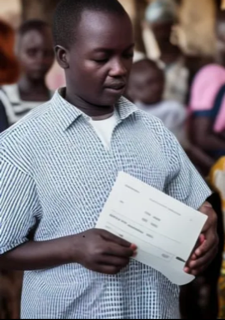Difference Between Voting and Influence
Voting is when people choose someone to represent them or make a decision based on what most people want. Influence is when people try to change someone's mind or make a decision go their way.
These two ways, voting and influence are similar, but they have differences.
Voting and influence are two ways of affecting outcomes, but they differ in their formality, regulation, and means of exerting power.
Voting aims to elect a representative or make a decision based on the collective will of the electorate, while influence aims to sway the outcome of a decision or opinion in one's favor.
Voting and influence are not mutually exclusive and can complement each other. Voting and influence share some similarities in their ability to affect outcomes, but they differ in terms of formality, regulation, and means of exerting power. Influence can equal power because it allows individuals or groups to shape opinions and decisions without formal authority.
The key difference between voting and influence is that voting is more formal and regulated, while influence can be exerted through various means, such as persuasion, negotiation, or networking.
Voting requires a certain level of organization and infrastructure, such as registration and ballot counting procedures, while influence can be exerted anywhere, including through social media, personal relationships, or mass media.
Interest groups may use influence tactics such as lobbying, public demonstrations, and social media campaigns to shape public opinion and gain support for their agenda.
In contrast, voting can be a powerful tool for enacting change and holding leaders accountable, but its power can be limited by factors such as voter turnout, electoral systems, and the influence of money and interest groups.
In African countries, economic and social inequality is a major issue that impacts the voting process. When certain groups have more resources and access to information than others, it gives them an unfair advantage in the election.
Additionally, when people are struggling to meet their basic needs, they are less likely to prioritize participation in the electoral process. This can include barriers such as restrictive voter registration requirements, limited access to polling stations, and the use of violence or intimidation to discourage certain groups from voting.
Candidates in African countries use both voting and influence strategies during election campaigns to win support and secure votes. They may use traditional campaign tactics such as canvassing, rallies, and ads to reach voters directly and encourage them to vote.
They may also use influence tactics such as endorsements, social proof, and emotional appeals to sway voters' opinions and gain their support.
Individuals and communities in African countries may use both voting and influence strategies to participate in the democratic process. They may use their vote to express their preferences and hold elected officials accountable.
They may also use influence tactics such as civic engagement, community organizing, and social activism to shape the issues and policies that affect their lives.
Part of the Resource Wars Archive
⚡ Explore Geopolitical Intelligence →


























